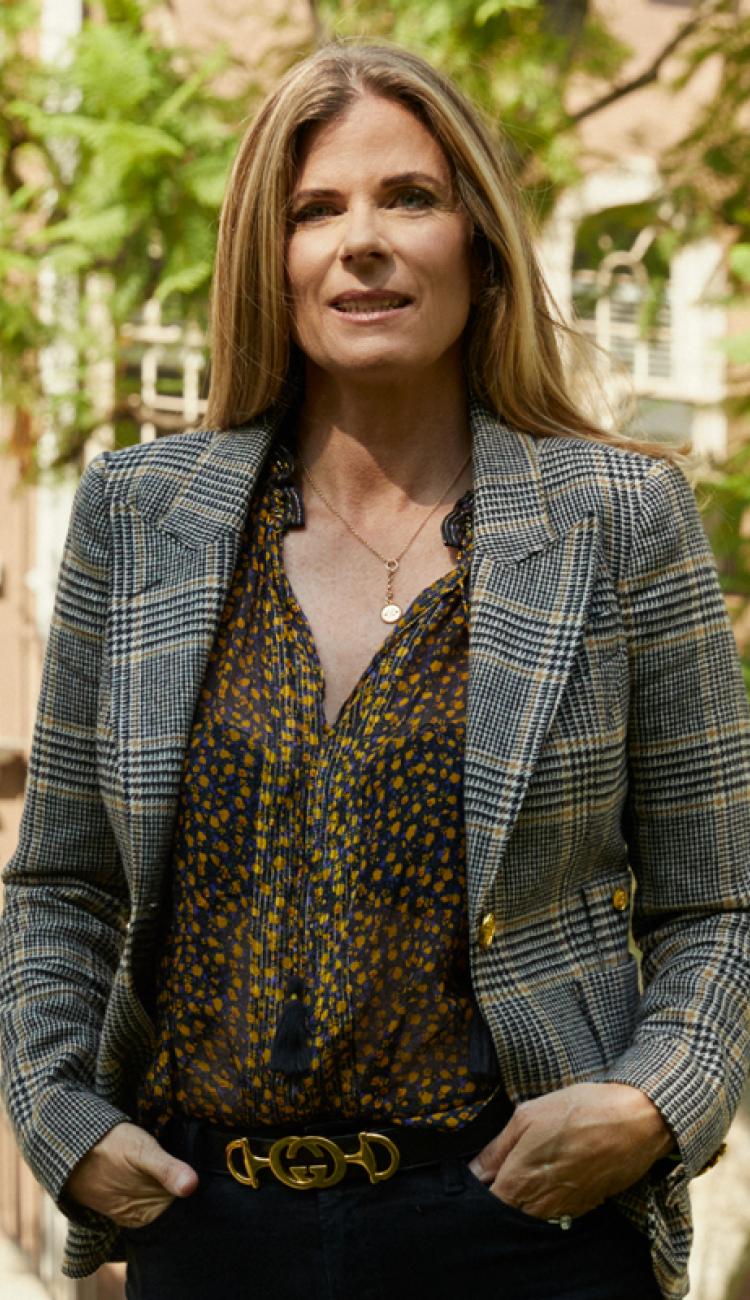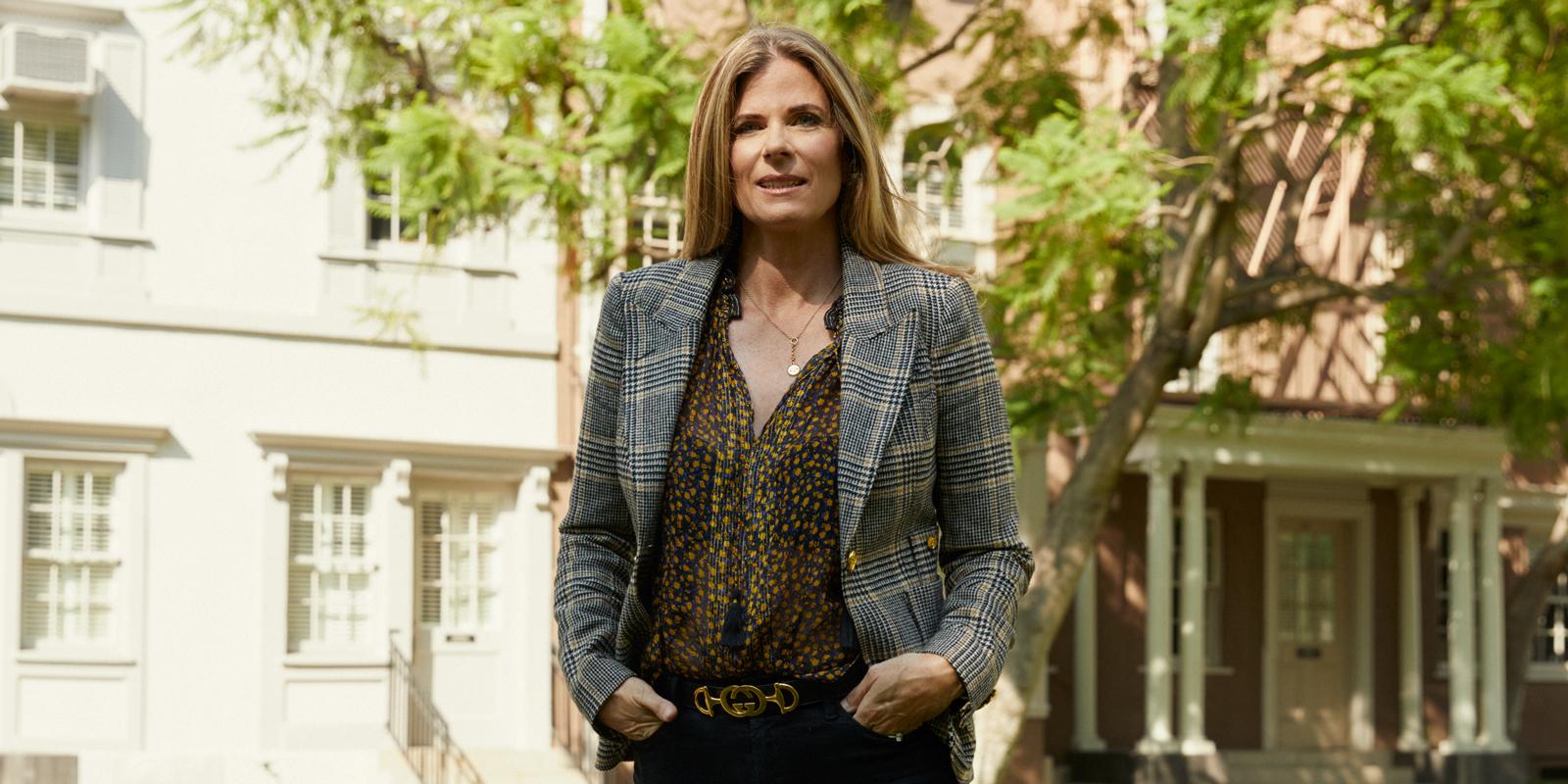Nov 11, 2019
“I loved TV when it wasn't cool.”
Our In the Office With ... series, gives Viacom executives the opportunity to reveal a little bit about who they are, how they lead, and what drives them in the day-to-day.
Nicole Clemens has witnessed the rise of Peak TV from many sides—as a producer and an agent and a development executive.
She had a hand in developing some of today’s most critically acclaimed shows, including You’re the Worst, Better Things, and Atlanta while serving as EVP of series development at FX. Prior to that, she was a longtime agent at the talent and literary firm ICM, running the department that brought books to the big and small screens and representing writers and directors such as Kurt Sutter, writer of Sons of Anarchy, and Angela Robinson, an executive producer of True Blood. Her first executive job was at Spelling Television, a particularly exciting gig since it was the studio behind her favorite TV show, Fantasy Island.
“I loved TV when it wasn't cool,” says Clemens, president of Paramount Television. “I stayed in it long enough for TV to rival film in its coolness and prestige, in my opinion.”
Paramount Television (editor's note: Paramount Television was rebranded as Paramount Television Studios in Jan. 2020) has contributed to the changing face of TV with hits like Jack Ryan for Amazon and The Haunting of Hill House on Netflix. Clemens, who was named studio chief in September 2018, is working to expand on those successes. The studio now has 26 shows ordered or in production. Among them are Shantaram, starring Charlie Hunnam, for Apple TV+, Made For Love and Station Eleven for HBO Max, Boomerang for BET, and Sexy Beast for Paramount Network.
Clemens and I recently spoke about how she approaches her job, Paramount Television’s competitive advantage, and what makes Grease so unique.
Tara Weiss: You've been the head of Paramount Television for just over a year. What was your top priority for year one?
Nicole Clemens: Reorganizing the team to make sure I had all the right players on the field. It was really important for me to hire a number two who could run development. I hired Jenna Santoianni, who is amazing, as EVP and head of development. She ran Sonar Entertainment before coming to us.
I also really wanted to create a Current Department to deal with shows that are on-the-air, because it's very important to manage your assets. I hired Cheryl Bosnak, who had been at ABC for 14 years, as EVP and head of current programming to run and build out that division. That freed up our development team to be able to hunt and gather and really build our slate.
We also needed to revamp and strengthen our long-term, exclusive relationships, including with companies like Smokehouse Pictures and Depth of Field; writers, directors, and producers like the Weitz brothers and Angela Robinson; and showrunners like Chris Levinson and Dana Fox. We really need to build out our relationships with creators who can generate great content.
TW: Every studio head approaches their job differently. Some lean heavily on the creative side, others on strategy. How do you divide your time and attention?
NC: I have a unique background because I was an agent for 16 years. I’ve also been a producer and I’ve been in development. This job involves buying, selling, and making—and I came to it with all those perspectives.
For the most part, my main job is to strategize with the production, business affairs, and creative departments and support them. It is also to look on the horizon for opportunities and trends and try to think strategically about where we should be going.
On certain projects, I get very much in the weeds on the creative. I have an unbelievable team who takes it most of the way. At certain points, when we're close to production or we’re close to submitting to a network, I'll get involved. But I'm very lucky that I have built such a good, solid team that I can joke and say I've nearly put myself out of a job.
"In this marketplace ... you need to have shows that everybody wants. "
TW: The number of content platforms continues to increase. How does that affect your job?
NC: The competition for content is fierce. But also for talent, whether it's writing talent or acting talent. Amazingly, the appetite [for new content] does not seem to be waning. It also means that there are a lot of buyers, so it cuts both ways.
I think our library gives us an advantage since we’re able to remake films that have been made in the past, though we certainly don't only develop from our library. A show like Devil in the White City is a really good example of that. That is a book that has been in development for a long time on the film side with Martin Scorsese and Leonardo DiCaprio executive producing. We were able to take the book out of the film library and turn it around and sell it to Hulu as a limited series.
TW: And then there’s the Grease series that was recently announced.
NC: Grease is a good example from the standpoint of films that have been produced. It's an incredible asset.
TW: How much do buyers influence what shows are made?
NC: When I ran development for FX, I could tell people what I wanted as a buyer all day long and I rarely got it. The most exciting thing was when something walked in the door and you were like, ‘oh my God, that's amazing.’ Sometimes you don't know what you want until you see it.
Part of this job is to be in conversation with various platforms and networks to understand what they're looking for. But in this marketplace, when we're looking to sell series rather than set-up development, you need to have shows that everybody wants. I want to build shows that attract enough interest to create leverage for our deal-making.
There are very few shows—like Grease, for example—that everybody would want. Grease was ready for HBO Max because of [Chairman of WarnerMedia Entertainment] Bob Greenblatt, who is well known for having a love of musical theater. And the timing was right because HBO Max is a new, voracious buyer in the marketplace. It was clear the sensibilities matched and the programming needs lined up. It was the perfect fit.
Small Talk
Riding roots: Horseback riding was the only sport I ever did as a kid. I started when I was five years old. I had my own horse and then showed and did hunter and jumper, always riding English style. I went away from it in my late teens and twenties, and then came back to it in my thirties. And then things just got so crazed. I go every year to a dude ranch with my family; I get my little dose there. I always say to myself that I'm going to get back into it, but I haven't figured out how to do it yet.
The show you wish were yours: Succession. It's my favorite show in a long time. I love it so much. The writing, the directing.
Early screen exposure: I was raised by television. I was a latchkey kid who would come home and watch TV. I worked at Spelling Television, it was my first executive job. I was so excited to work at the place that made Fantasy Island. I seriously was a hardcore Fantasy Island fan.
Photography: Camilla Armbrust
Art Direction: Liane Radel






